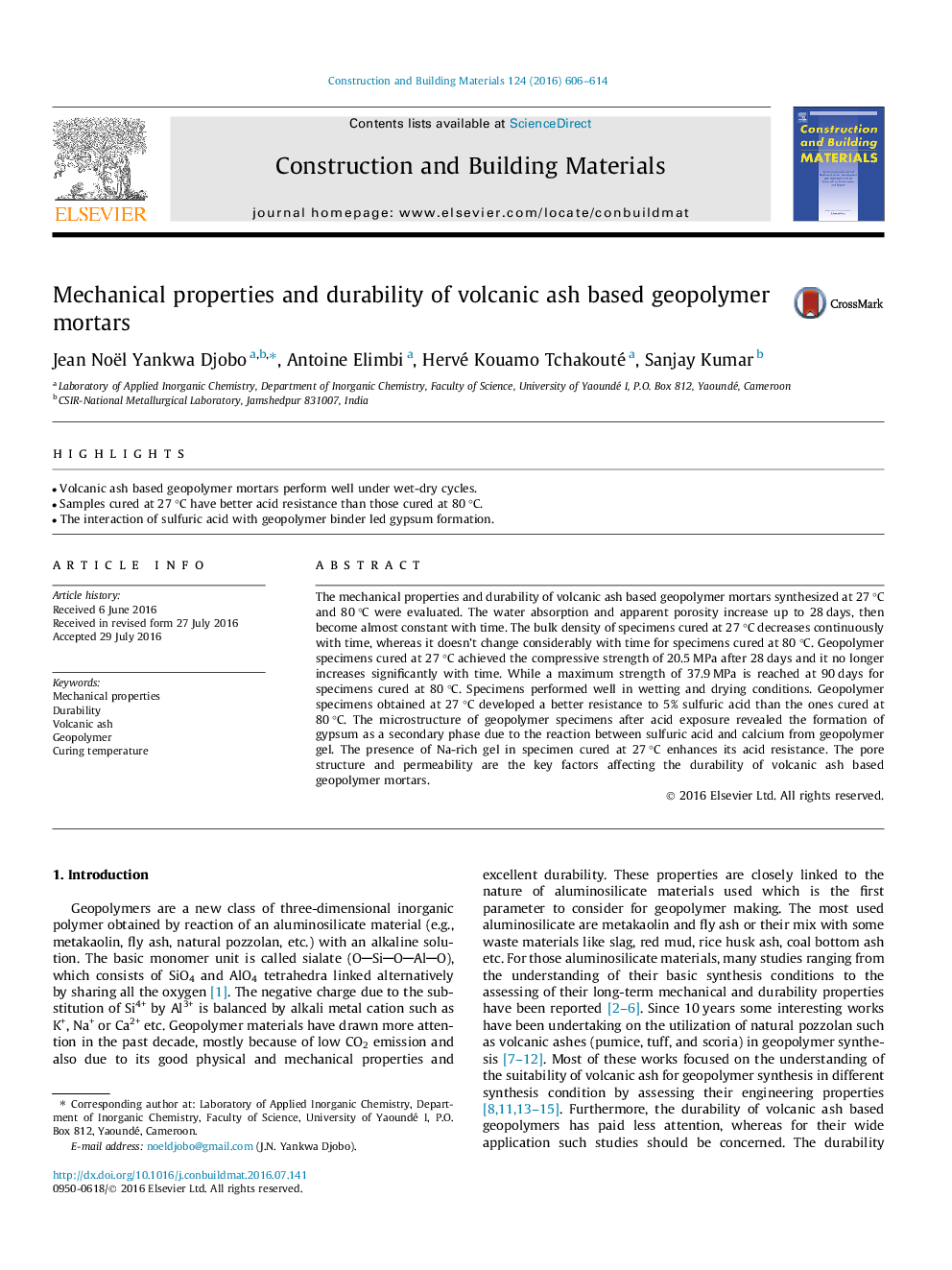| Article ID | Journal | Published Year | Pages | File Type |
|---|---|---|---|---|
| 255714 | Construction and Building Materials | 2016 | 9 Pages |
•Volcanic ash based geopolymer mortars perform well under wet-dry cycles.•Samples cured at 27 °C have better acid resistance than those cured at 80 °C.•The interaction of sulfuric acid with geopolymer binder led gypsum formation.
The mechanical properties and durability of volcanic ash based geopolymer mortars synthesized at 27 °C and 80 °C were evaluated. The water absorption and apparent porosity increase up to 28 days, then become almost constant with time. The bulk density of specimens cured at 27 °C decreases continuously with time, whereas it doesn’t change considerably with time for specimens cured at 80 °C. Geopolymer specimens cured at 27 °C achieved the compressive strength of 20.5 MPa after 28 days and it no longer increases significantly with time. While a maximum strength of 37.9 MPa is reached at 90 days for specimens cured at 80 °C. Specimens performed well in wetting and drying conditions. Geopolymer specimens obtained at 27 °C developed a better resistance to 5% sulfuric acid than the ones cured at 80 °C. The microstructure of geopolymer specimens after acid exposure revealed the formation of gypsum as a secondary phase due to the reaction between sulfuric acid and calcium from geopolymer gel. The presence of Na-rich gel in specimen cured at 27 °C enhances its acid resistance. The pore structure and permeability are the key factors affecting the durability of volcanic ash based geopolymer mortars.
